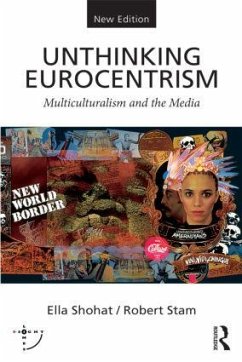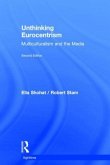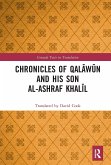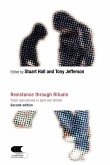Unthinking Eurocentrism, a seminal and award-winning work in postcolonial studies first published in 1994, explored Eurocentrism as an interlocking network of buried premises, embedded narratives, and submerged tropes that constituted a broadly shared epistemology. Within a transdisciplinary study, the authors argued that the debates about Eurocentrism and post/coloniality must be considered within a broad historical sweep that goes at least as far back as the various 1492s - the Inquisition, the Expulsion of Jews and Muslims, the Conquest of the Americas, and the Transatlantic slave trade - a process which culminates in the post-War attempts to radically decolonize global culture. Ranging over multiple geographies, the book deprovincialized media/cultural studies through a "polycentric" approach, while analysing in depth such issues as postcolonial hybridity, antinomies of Enlightenment, the tropes of empire, gender and rescue fantasies, the racial politics of casting, and the limitations of "positive image" analysis.
The substantial new afterword in this 20th anniversary new edition brings these issues into the present by charting recent transformations of the intellectual debates, as terms such as the "transnational," the "commons," "indigeneity," and the "Red Atlantic" have come to the fore. The afterword also explores some cinematic trends such as "indigenous media" and "postcolonial adaptations" that have gained strength over the past two decades, along with others, such as Nollywood, that have emerged with startling force. Winner of the Katherine Kovacs Singer Best Film Book Award, the book has been translated in full or in its entirety into diverse languages from Spanish to Farsi. This expanded edition of a ground-breaking text proposes analytical grids relevant to a wide variety of fields including postcolonial studies, literary studies, anthropology, media studies, cultural studies, and critical race studies.
The substantial new afterword in this 20th anniversary new edition brings these issues into the present by charting recent transformations of the intellectual debates, as terms such as the "transnational," the "commons," "indigeneity," and the "Red Atlantic" have come to the fore. The afterword also explores some cinematic trends such as "indigenous media" and "postcolonial adaptations" that have gained strength over the past two decades, along with others, such as Nollywood, that have emerged with startling force. Winner of the Katherine Kovacs Singer Best Film Book Award, the book has been translated in full or in its entirety into diverse languages from Spanish to Farsi. This expanded edition of a ground-breaking text proposes analytical grids relevant to a wide variety of fields including postcolonial studies, literary studies, anthropology, media studies, cultural studies, and critical race studies.
"Unthinking Eurocentrism was so refreshing because of the confidence of its eclecticism, the forcefulness of its arguments, the range of its geographical and linguistic materials, and the way it brought indigenous issues to the centre of political and intellectual debate. The obligation to 'unthink Eurocentrism' has not diminished in the last twenty years, so the 2014 edition is welcome, with the new Afterword amply demonstrating that Shohat and Stam have lost none of their stamina or their lucidity. Readers' horizons will again be broadened."
Peter Hulme, Department of Literature, Film, and Theatre Studies, University of Essex
"Unthinking Eurocentrism was a hugely influential book, and remains so twenty years later. It informed my approach to the study of film from early on, in conveying how film and media countersign ideology and the subtle workings of social consciousness. It taught me to approach film not solely as text, but first and foremost as context; to focus on film culture and mediated discourse. Unthinking Eurocentrism's utter exuberance of referencing was particularly inspirational. Confidently flowing and cutting across cultures and discourses whilst revealing patterns of othering and orientalisation that work throughout the world, both outside and within Europe, it motivates and excites. This is how I want all writing on film to be: rich and intense. It is a book that shaped, and continues shaping, all my work."
Dina Iordanova, Professor of Global Cinema and Creative Cultures and Director of the Centre for Film Studies, University of St. Andrews
Peter Hulme, Department of Literature, Film, and Theatre Studies, University of Essex
"Unthinking Eurocentrism was a hugely influential book, and remains so twenty years later. It informed my approach to the study of film from early on, in conveying how film and media countersign ideology and the subtle workings of social consciousness. It taught me to approach film not solely as text, but first and foremost as context; to focus on film culture and mediated discourse. Unthinking Eurocentrism's utter exuberance of referencing was particularly inspirational. Confidently flowing and cutting across cultures and discourses whilst revealing patterns of othering and orientalisation that work throughout the world, both outside and within Europe, it motivates and excites. This is how I want all writing on film to be: rich and intense. It is a book that shaped, and continues shaping, all my work."
Dina Iordanova, Professor of Global Cinema and Creative Cultures and Director of the Centre for Film Studies, University of St. Andrews









